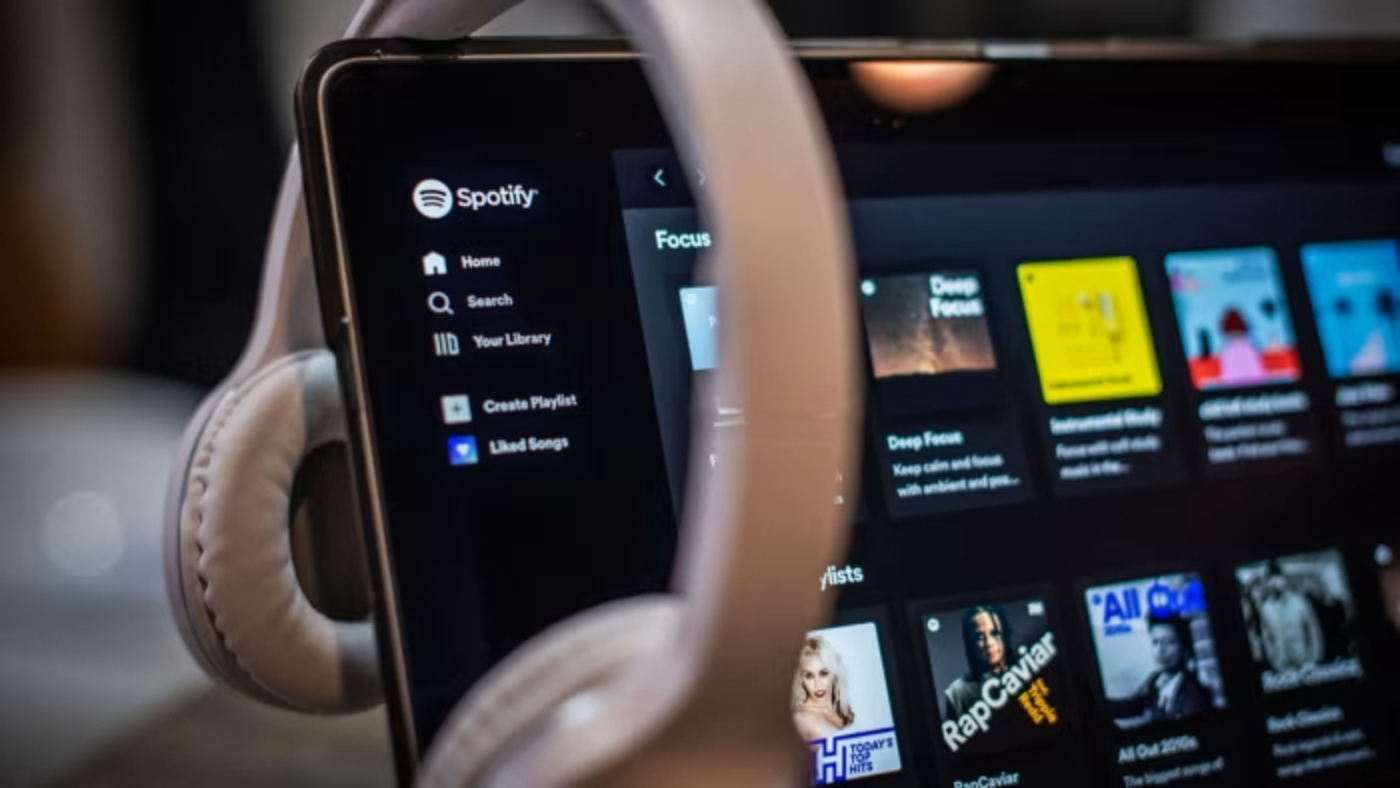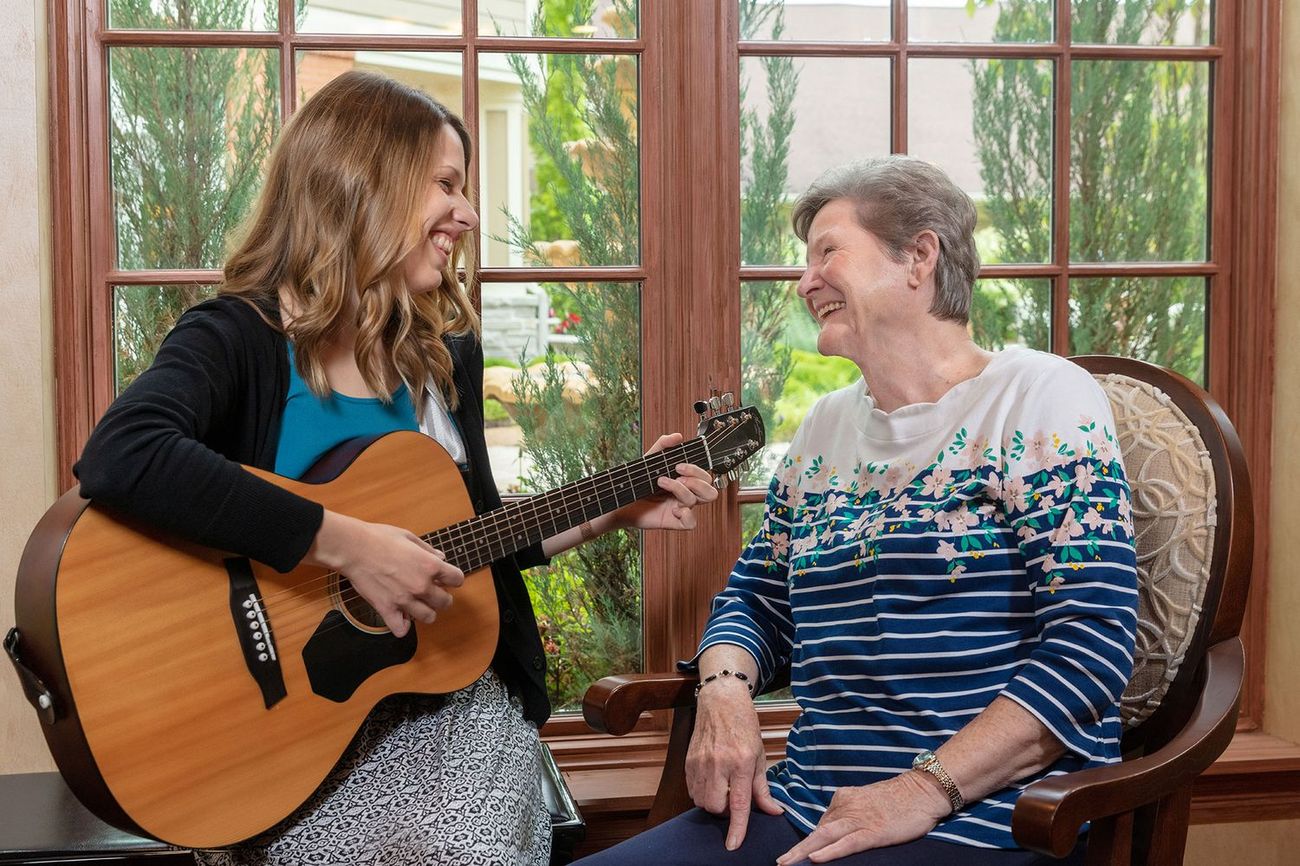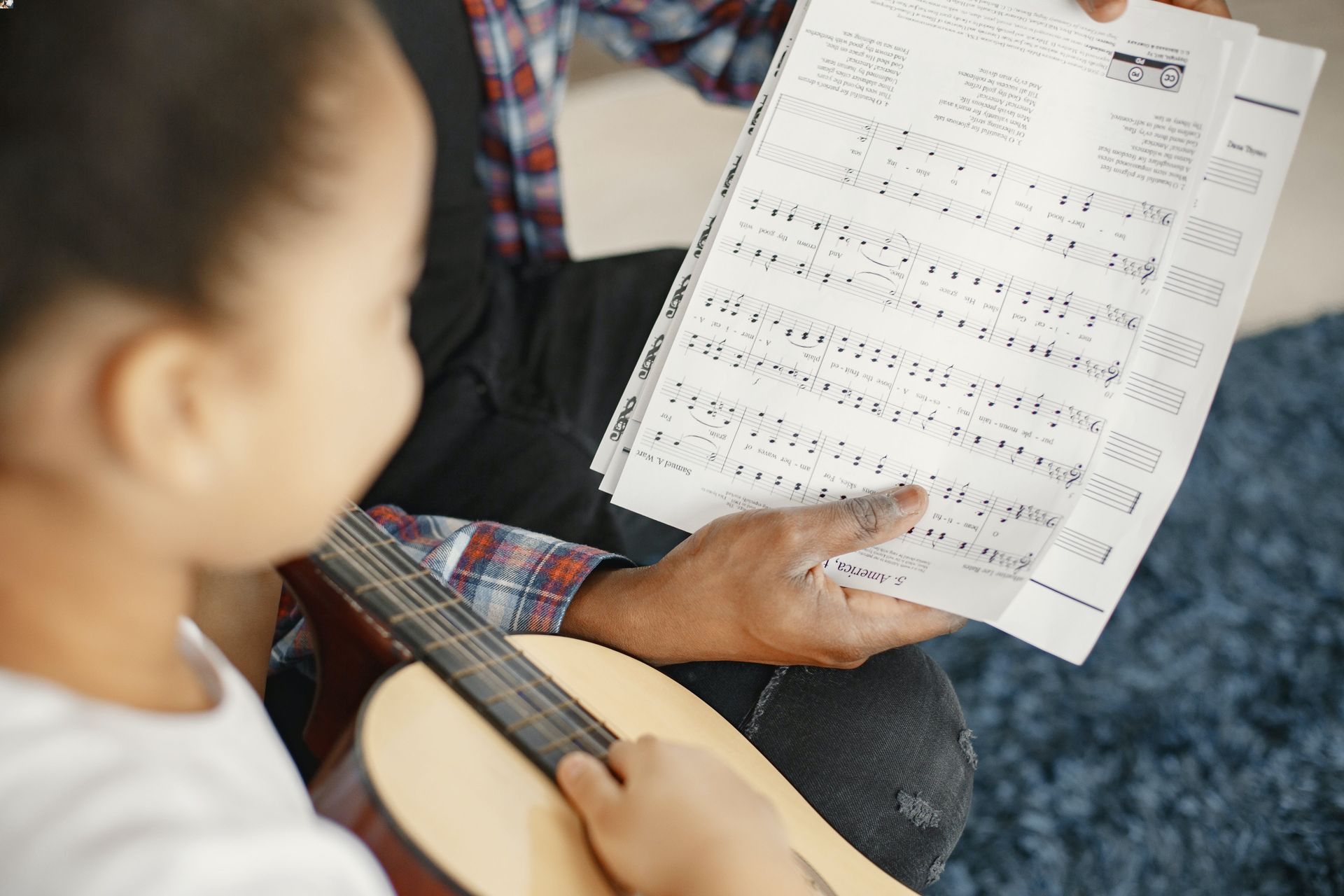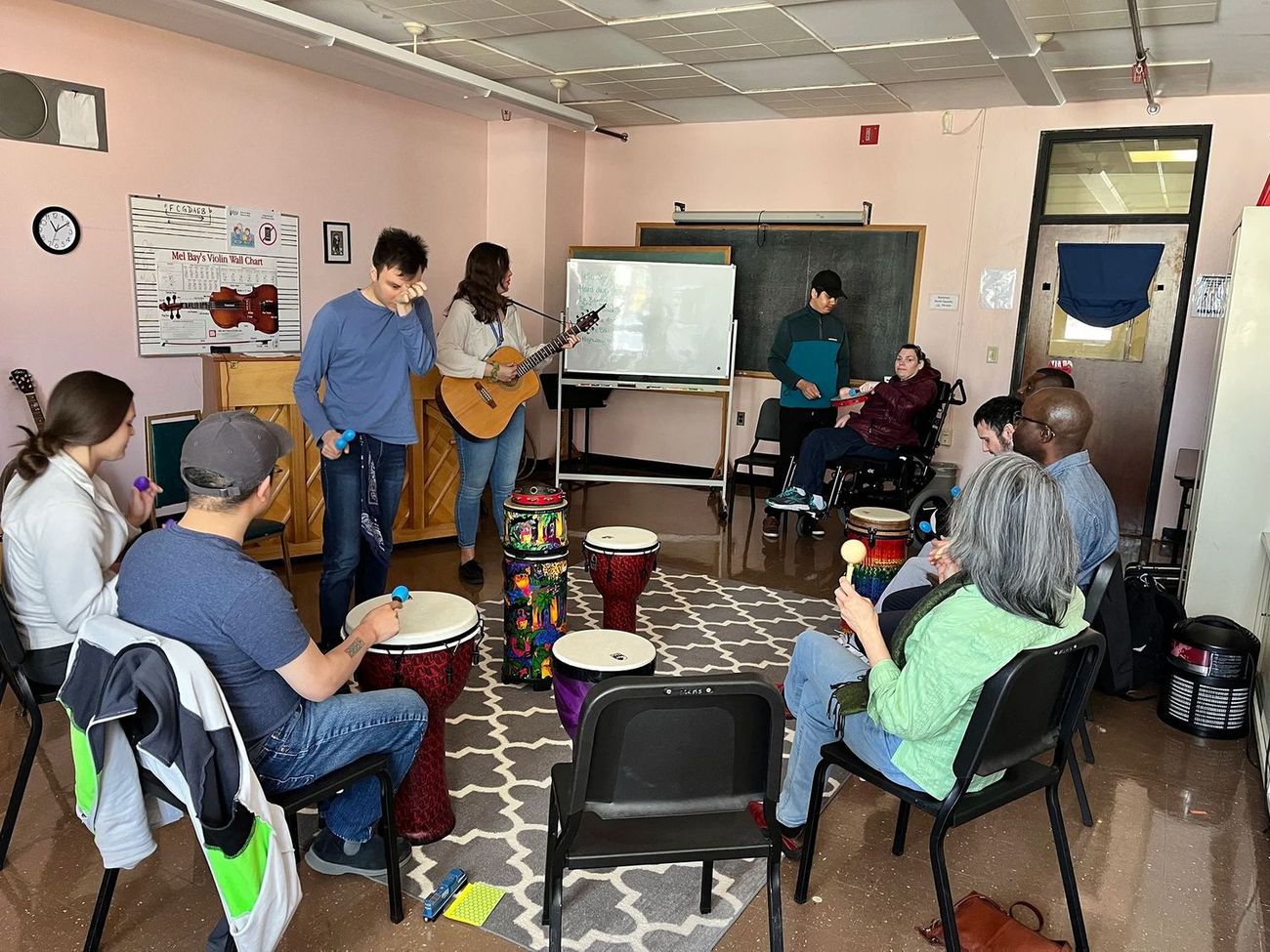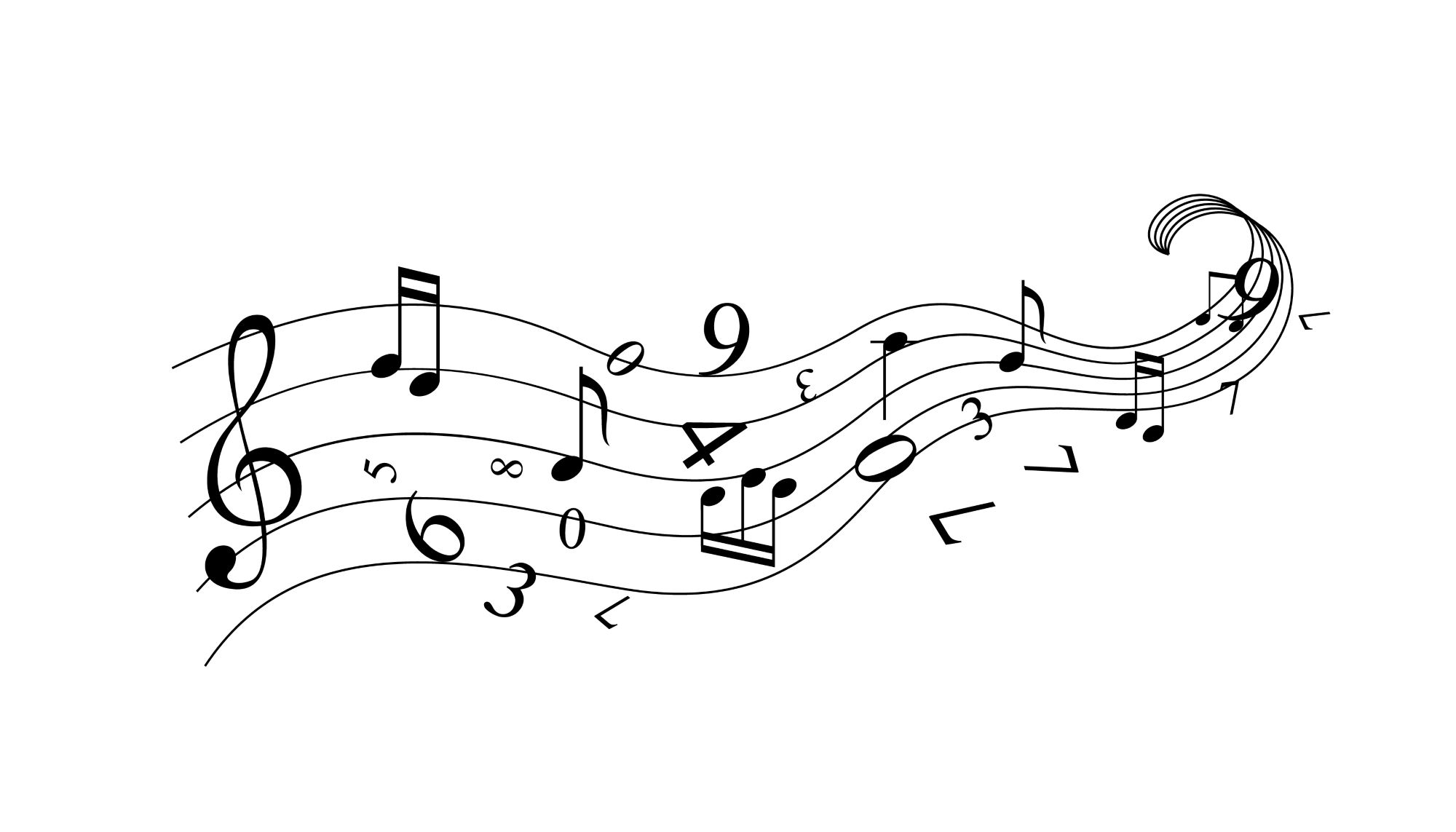Home>Events & Info>Music Therapy>How Music Therapy Helps With ADHD


Music Therapy
How Music Therapy Helps With ADHD
Modified: February 19, 2024
Discover how music therapy can be a beneficial treatment for ADHD, helping individuals improve focus, reduce hyperactivity, and enhance emotional well-being.
(Many of the links in this article redirect to a specific reviewed product. Your purchase of these products through affiliate links helps to generate commission for AudioLover.com, at no extra cost. Learn more)
Table of Contents
Introduction
Music has always had a profound impact on human emotions, providing solace and joy in times of need. But did you know that music can also be used as a powerful therapeutic tool?
In recent years, the field of music therapy has gained recognition for its ability to help individuals overcome various challenges and improve their overall well-being. One area where music therapy has shown remarkable promise is in the treatment of Attention Deficit Hyperactivity Disorder (ADHD).
ADHD is a neurodevelopmental disorder that affects both children and adults, making it difficult for them to concentrate, control impulsive behavior, and regulate emotions. Traditional treatment options often involve medication and therapy, but music therapy offers a unique and holistic approach to managing ADHD symptoms.
Music therapy utilizes the universal language of music to promote emotional, cognitive, social, and physical well-being. It involves the use of various musical techniques, such as listening, singing, playing instruments, and composing, to address specific goals and objectives for individuals with ADHD.
Research has shown that music therapy can significantly improve focus, attention, emotional regulation, and social skills in individuals with ADHD. By harnessing the power of music, therapists can tap into the brain’s innate ability to respond to rhythm, melody, and harmony, creating a pathway for positive change.
In this article, we will explore the benefits of music therapy for individuals with ADHD, delve into different techniques used in music therapy sessions, and provide insights on implementing music therapy as part of ADHD treatment.
Understanding ADHD
Before exploring how music therapy can help individuals with ADHD, it’s important to have a basic understanding of this neurodevelopmental disorder.
ADHD, or Attention Deficit Hyperactivity Disorder, is a common behavioral disorder that affects both children and adults. Individuals with ADHD often struggle with inattention, hyperactivity, and impulsivity. These symptoms can significantly impact their daily functioning, academic performance, and relationships.
There are three main types of ADHD:
- Predominantly Inattentive Presentation: Individuals with this type of ADHD have difficulty paying attention, staying organized, and following through on tasks. They may appear daydreamy and easily distracted.
- Predominantly Hyperactive-Impulsive Presentation: Individuals with this type of ADHD exhibit hyperactivity and impulsivity. They may struggle with sitting still, waiting their turn, and blurting out responses without thinking.
- Combined Presentation: This is the most common type of ADHD, where individuals display both inattentive and hyperactive-impulsive symptoms.
ADHD is believed to be caused by a combination of genetic, environmental, and neurological factors. It is important to note that ADHD is a legitimate medical condition and not simply a result of laziness or lack of discipline. It can impact individuals of all ages, and proper diagnosis and treatment are essential for managing its symptoms.
ADHD can have a significant impact on various areas of life, including academics, work performance, relationships, and self-esteem. Individuals with ADHD may experience difficulties with organization, time management, and completing tasks. They may struggle to regulate their emotions, leading to mood swings and impulsive behavior. These challenges can often result in feelings of frustration, low self-confidence, and a sense of being misunderstood.
While there is no cure for ADHD, a combination of therapeutic interventions, behavior modification strategies, and, in some cases, medication, can help individuals effectively manage their symptoms and lead fulfilling lives. One such therapeutic intervention that has shown great promise is music therapy.
What is Music Therapy?
Music therapy is a specialized form of therapy that utilizes the power of music to address physical, emotional, cognitive, and social needs of individuals. It is a research-based practice that integrates music and therapeutic techniques to achieve therapeutic goals.
Music therapists are trained professionals who have the knowledge of both music and psychology. They work with individuals of all ages and with various conditions, including ADHD, autism spectrum disorder, depression, and anxiety.
Music therapy sessions can be conducted in a one-on-one setting or in a group. The therapist engages the individual in various musical activities, such as listening to music, playing instruments, singing, and composing. The therapist carefully designs and adapts these activities to meet the specific needs and abilities of the individual.
The use of music in therapy has a profound impact on the brain. Music has the ability to stimulate multiple areas of the brain simultaneously, resulting in various physiological and psychological responses. It can affect heart rate, blood pressure, and respiratory patterns, as well as evoke emotional responses and enhance cognitive function.
Music therapy is not about learning to play a musical instrument or becoming a skilled musician. Instead, it focuses on the therapeutic benefits that music can offer. The therapist considers the individual’s preferences, strengths, and therapeutic goals when designing the music therapy interventions.
The therapeutic techniques used in music therapy can include:
- Active Music Making: This involves actively participating in music-making activities, such as playing instruments, singing, and moving to music. It encourages self-expression, creativity, and emotional release.
- Receptive Music Listening: This involves listening to carefully selected music to evoke specific emotions or promote relaxation. The therapist may guide the individual in reflective exercises or discussions after the listening experience.
- Improvisation: This technique allows individuals to freely explore and create music without any predetermined structure. It encourages spontaneity, self-expression, and emotional exploration.
- Songwriting: Individuals are encouraged to write and compose their own songs as a means of self-expression and storytelling. This technique can help individuals process their feelings and experiences.
Music therapy provides a safe, non-judgmental space for individuals to explore their emotions, improve communication skills, and develop coping strategies. It harnesses the universal language of music to facilitate growth, self-discovery, and healing.
The Benefits of Music Therapy for Individuals with ADHD
Music therapy offers a wide range of benefits for individuals with ADHD. It addresses the unique challenges they face in areas such as focus, attention, emotional regulation, and social skills. Here are some of the key benefits of music therapy for individuals with ADHD:
- Enhancing Focus and Attention: One of the hallmark symptoms of ADHD is difficulty sustaining focus and attention. Music therapy utilizes rhythm, melody, and other musical elements to capture and maintain individuals’ attention. The structured and predictable nature of music helps individuals with ADHD improve their ability to concentrate and stay engaged in tasks and activities.
- Regulating Emotions: Emotional dysregulation is another common challenge faced by individuals with ADHD. Music has the power to evoke various emotions and can serve as a tool for emotional expression and regulation. Through music therapy, individuals with ADHD can learn to identify and manage their emotions in a safe and supportive environment.
- Improving Social Skills: Many individuals with ADHD struggle with social interactions and forming meaningful connections with others. Music therapy provides opportunities for group activities and collaborative music-making, fostering social skills such as turn-taking, listening, and cooperation. It creates a platform for individuals with ADHD to connect with others through shared musical experiences.
- Enhancing Cognitive Skills: Individuals with ADHD often experience difficulties with executive functioning skills, such as problem-solving, planning, and organization. Music therapy can help improve these cognitive skills through activities that require sequencing, strategizing, and memory recall. Engaging in musical activities can also enhance overall cognitive function and brain development.
- Boosting Self-confidence and Self-esteem: Music therapy provides a nurturing and non-judgmental space for individuals with ADHD to explore their abilities, express themselves, and achieve success. Accomplishing musical goals and receiving positive feedback from the therapist and peers can boost self-confidence and improve self-esteem.
- Stress Reduction: ADHD can often lead to feelings of stress and overwhelm. Music has a soothing and calming effect on the nervous system, reducing anxiety and promoting relaxation. Music therapy sessions can help individuals with ADHD find comfort and emotional relief.
It is important to note that music therapy is not a standalone treatment for ADHD. It is most effective when used as part of a comprehensive treatment approach that may include medication, counseling, and behavioral interventions. Music therapy complements these interventions and can enhance their overall effectiveness.
By harnessing the power of music, individuals with ADHD can experience significant improvements in their overall well-being, emotional regulation, social skills, and academic performance. Music therapy offers a unique and engaging approach to support individuals with ADHD on their journey towards a more fulfilling and empowered life.
Enhancing Focus and Attention
One of the core challenges faced by individuals with ADHD is difficulty in focusing and maintaining attention. This can have a significant impact on their ability to complete tasks, follow instructions, and stay engaged in conversations or activities. Music therapy offers a unique and effective approach to enhancing focus and attention in individuals with ADHD.
Music has inherent rhythmic patterns and structures that can naturally capture and maintain attention. When individuals with ADHD engage in music therapy activities, such as playing an instrument, singing, or listening to music, they are encouraged to stay focused on the rhythm, melody, and timing. This rhythmic engagement acts as a scaffolding for improving attention skills.
Music therapy sessions employ techniques that are tailor-made to address individual attention needs. For example, a therapist might start by using slow, steady rhythms and gradually increase the complexity or tempo to gradually challenge and improve attention span. By incorporating different musical elements and incorporating structured activities, music therapy helps individuals with ADHD develop sustained attention and focus skills.
Another way music therapy enhances focus and attention is through the use of repetition and predictability. Many individuals with ADHD can find repetitive tasks or routines difficult to engage in, leading to boredom or frustration. However, in music therapy, repetition is often used in a creative and engaging manner. It provides a structured framework for individuals to practice sustained attention, while also allowing for creative expression and exploration within the repetition. This combination helps individuals with ADHD develop the ability to focus and concentrate for longer periods of time, even in repetitive or structured activities.
Furthermore, music therapy offers a multisensory experience that can further enhance focus and attention. Engaging with musical instruments, listening to music, and participating in movement or dance activities involve multiple senses simultaneously, activating different areas of the brain. This multisensory stimulation helps individuals with ADHD maintain alertness and engagement, improving their ability to concentrate and focus.
It is important to note that the benefits of music therapy for enhancing focus and attention are not limited to the duration of the therapy session. Studies have shown that the improvements in attention and focus skills gained through music therapy can generalize to other areas of life. Individuals with ADHD may find it easier to focus on academic tasks, complete homework, and participate in social interactions more effectively.
Overall, music therapy provides a structured, engaging, and stimulating environment that supports individuals with ADHD in improving their focus and attention skills. By leveraging the power of music, music therapy offers a unique and effective approach to addressing the specific attention needs of individuals with ADHD.
Regulating Emotions
Emotional regulation is a significant challenge for many individuals with ADHD. They often experience difficulties managing and controlling their emotions, leading to impulsive behaviors, mood swings, and difficulty in maintaining emotional stability. Music therapy offers a powerful tool for regulating emotions and helping individuals with ADHD develop healthy coping strategies.
Music has a profound impact on emotions. It has the ability to evoke specific feelings, elicit memories, and create a sense of connection. In music therapy sessions, therapists carefully select or create music that aligns with the emotional needs of individuals with ADHD. This intentional use of music can help individuals explore and express their emotions in a safe and supportive environment.
The rhythmic and melodic elements of music can have a calming effect on the nervous system. Engaging with music can reduce anxiety and stress levels, promoting relaxation and emotional well-being. By incorporating relaxing or soothing music into music therapy sessions, individuals with ADHD can learn techniques for self-soothing and emotional regulation.
Music therapy also offers opportunities for emotional expression and release. Playing musical instruments, singing, or improvising allows individuals to express and communicate their emotions without relying solely on verbal language. This creative outlet can be especially beneficial for individuals with ADHD, as they may struggle with verbal expression of their emotions.
Moreover, music therapy provides a structured and predictable environment for individuals with ADHD. The predictability of music can help individuals feel safe and secure, reducing feelings of unpredictability or overwhelm. This sense of stability and structure can support emotional regulation and provide a foundation for individuals to explore and process their emotions.
In music therapy sessions, therapists often facilitate discussions or reflective exercises after engaging with music. This helps individuals with ADHD gain insight into the emotions and experiences evoked by the music. Through guided discussions, individuals can identify and articulate their emotions more effectively, enhance self-awareness, and develop skills for emotional regulation.
Furthermore, the social nature of music therapy can also contribute to emotional regulation. Group music therapy sessions provide opportunities for individuals with ADHD to interact with others who may share similar experiences. This sense of connection and support can have a positive impact on emotional well-being and foster a sense of belonging.
By using music as a therapeutic tool, music therapy offers individuals with ADHD a unique and effective means of regulating their emotions. By exploring and expressing emotions through music, individuals can develop coping strategies, enhance self-awareness, and cultivate emotional stability in their daily lives.
Improving Social Skills
Individuals with ADHD often face challenges in social interactions, making it difficult for them to form and maintain meaningful relationships. Music therapy provides a supportive and engaging platform to improve social skills and enhance social interactions for individuals with ADHD.
Group music therapy sessions offer an opportunity for individuals with ADHD to engage in collaborative musical activities with their peers. These activities require communication, cooperation, and turn-taking, which are essential social skills. By participating in group music-making, individuals with ADHD can practice and develop these skills in a structured and enjoyable setting.
Playing musical instruments as part of a group encourages active listening and coordination with other participants. This fosters teamwork and the ability to synchronize with others. Through joint music-making experiences, individuals with ADHD can improve their ability to collaborate, negotiate, and compromise effectively.
In addition to group sessions, music therapy can also incorporate social skills training within individual sessions. Therapists can tailor music activities to focus specifically on social interaction skills. For example, using call-and-response exercises or improvisation games that require listening, responding, and taking cues from others.
Music therapy also provides a non-verbal means of communication, which can be particularly beneficial for individuals with ADHD who may struggle with verbal expression. Engaging in musical activities allows individuals to express their thoughts, feelings, and ideas without the pressure of using words. This can boost their self-confidence, reduce anxiety, and improve their ability to engage in social interactions.
Furthermore, music therapy provides a safe and non-judgmental space for individuals with ADHD to practice social skills and receive feedback. Therapists can offer guidance and support during music activities, helping individuals develop awareness of their social behaviors and providing opportunities for skill-building.
Participating in music therapy sessions also offers individuals with ADHD exposure to a diverse group of peers who may share similar experiences. This can facilitate a sense of belonging and reduce feelings of isolation. Through music, individuals can connect on a deeper level, fostering empathy, understanding, and social connection.
Music therapy can also help individuals develop empathy and perspective-taking skills. Engaging with music from different genres and cultural backgrounds exposes individuals to diverse perspectives and experiences. This broadens their understanding of others and promotes empathy and acceptance.
In summary, music therapy is an effective approach for improving social skills in individuals with ADHD. By engaging in collaborative music-making, developing communication and coordination skills, and providing a non-verbal means of expression, music therapy serves as a nurturing environment for individuals to enhance their social interactions, build relationships, and cultivate a sense of connection with others.
Enhancing Cognitive Skills
Individuals with ADHD often struggle with cognitive skills such as attention, memory, problem-solving, and executive functioning. Music therapy provides a unique and engaging approach to enhancing these cognitive skills for individuals with ADHD.
One of the ways music therapy improves cognitive skills is through rhythm and timing. Music is inherently rhythmic, and engaging with rhythm and timing requires individuals to pay attention, process information, and coordinate their movements. By playing instruments, clapping, or tapping along to a beat, individuals with ADHD can improve their ability to focus and maintain attention, as well as develop their sense of timing and rhythm.
Furthermore, learning and playing musical instruments involve using motor skills, hand-eye coordination, and spatial awareness. The repetitive practice of playing an instrument helps individuals develop fine motor skills and improve coordination, which can have a positive impact on their overall cognitive functioning.
Music therapy also offers opportunities for memory enhancement. Learning and memorizing songs, melodies, and rhythms involves the use of working memory. Engaging with music in a structured and repetitive manner can improve both short-term and long-term memory. This ability to remember and recall information has a transfer effect, benefiting other areas of cognitive function.
In addition to memory enhancement, music therapy supports the development of problem-solving skills. Improvisation activities, for example, encourage individuals to think creatively, make decisions on the spot, and adapt to changing musical circumstances. This promotes flexibility, problem-solving, and thinking outside the box.
Executive functioning skills, such as planning, organizing, and prioritizing, can also be improved through music therapy. In music therapy sessions, individuals are often required to follow a structure, sequence of activities, or a specific musical arrangement. Engaging in these structured activities fosters the development of organization and planning skills, which can be transferred to other areas of life.
Moreover, music therapy incorporates auditory processing skills. Listening to music and engaging with different sounds and musical elements can improve auditory discrimination, auditory attention, and auditory sequencing abilities. These skills are essential for effective communication and learning in academic and social settings.
Research has shown that music therapy can have positive effects on overall cognitive functioning in individuals with ADHD. It enhances attention, memory, problem-solving, executive functioning, and auditory processing skills. The engaging and multisensory nature of music therapy helps individuals with ADHD develop and strengthen their cognitive abilities in a fun and enjoyable way.
Incorporating music therapy into an ADHD treatment plan can provide a holistic approach to addressing cognitive challenges and promoting overall cognitive development.
Implementing Music Therapy for ADHD Treatment
When incorporating music therapy into an ADHD treatment plan, it is important to ensure that it is implemented in a comprehensive and individualized manner. Here are some key considerations for implementing music therapy in the treatment of ADHD:
1. Assessment: Begin by conducting a thorough assessment of the individual’s needs, strengths, and goals. This assessment can include interviews, observations, and standardized assessments to gather information about the individual’s musical preferences, emotional regulation, social skills, attention span, and cognitive abilities. This assessment will help the music therapist tailor the therapy sessions to meet the specific needs of the individual.
2. Collaboration with a Multidisciplinary Team: Music therapy should be integrated as part of a multidisciplinary treatment approach. Collaborate with other professionals involved in the individual’s care, such as physicians, psychologists, teachers, and occupational therapists. Regular communication and collaboration ensure that the various interventions align and complement each other, providing optimal support for the individual with ADHD.
3. Setting Goals and Objectives: Work together with the individual and their support system to set specific and measurable goals for music therapy. These goals can span areas such as attention and focus, emotional regulation, social skills, cognitive abilities, and self-esteem. Setting clear objectives ensures that therapy sessions are structured and focused on achieving desired outcomes.
4. Tailoring Music Therapy Interventions: Based on the assessment and identified goals, tailor the music therapy interventions to address specific needs. This may involve selecting appropriate musical activities, instruments, and techniques that support attention, emotional regulation, social skills, and cognitive development. Flexibility is key, as the therapist may need to adapt activities based on the individual’s response and progress.
5. Consistency and Repetition: Consistency and regularity in music therapy sessions are important for individuals with ADHD. Regular sessions provide a structured routine that individuals can rely on. Repetition of musical activities helps individuals consolidate their skills, build confidence, and generalize learned skills to other areas of life.
6. Generalization and Transfer to Daily Life: The ultimate goal of music therapy is to help individuals with ADHD transfer the skills and strategies learned in therapy to their everyday lives. Facilitate this process by discussing and exploring how the skills and insights gained in music therapy can be applied to academic tasks, social interactions, and emotional regulation outside of the therapy setting.
7. Evaluation and Monitoring: Regularly evaluate the progress of the individual in achieving the set goals. This can be done through ongoing assessments, feedback from the individual and their support system, and observation of their functioning in various contexts. Monitoring progress helps track the effectiveness of the music therapy interventions and allows for adjustments if necessary.
8. Integration of Music in Daily Life: Encourage individuals with ADHD to incorporate music in their daily routines outside of music therapy sessions. This can involve listening to music, engaging in music-making activities, or using music as a tool for relaxation and emotional regulation. The integration of music into everyday life can help reinforce the benefits gained from music therapy.
Remember, music therapy is most effective when used as part of a comprehensive ADHD treatment plan. It is not a standalone intervention but rather a valuable addition to a multidisciplinary approach that may also include medication, psychoeducation, behavioral interventions, and other therapeutic modalities.
By implementing music therapy in a thoughtful and individualized manner, individuals with ADHD can benefit from its unique ability to enhance attention, emotional regulation, social skills, and cognitive functioning, leading to improved overall well-being and quality of life.
Music Therapy Techniques for ADHD
Music therapy offers a variety of techniques that are specifically designed to address the needs of individuals with ADHD. These techniques utilize the power of music to improve attention, emotional regulation, social skills, and cognitive function. Here are some music therapy techniques commonly used for ADHD:
1. Rhythmic Entrainment: This technique involves using rhythm and timing to engage individuals with ADHD and improve their attention and focus. The therapist may use percussion instruments, such as drums or tambourines, to establish a steady beat and encourage the individual to play along or move in sync with the rhythm.
2. Singing and Vocalization: Singing and vocalization activities help individuals with ADHD engage their breath control and develop vocal expression. Singing can be used to practice following instructions, improving working memory, and coordinating physical movements. Vocal expression allows individuals to express their emotions and thoughts through the power of music.
3. Instrumental Play: Playing musical instruments can be a beneficial activity for individuals with ADHD. It promotes hand-eye coordination, fine motor skills, and cognitive development. The therapist may introduce different instruments and guide the individual to explore and create music, promoting self-expression and creativity.
4. Improvisation: Improvisation activities provide individuals with ADHD the opportunity to express themselves freely and spontaneously in a supportive environment. This technique allows for experimentation, creative problem-solving, and self-discovery. Improvising with instruments, voice, or movement encourages individuals to think and respond in the moment without judgment.
5. Music Listening: Active music listening can be a powerful tool in music therapy for individuals with ADHD. Listening to carefully selected music can help regulate emotions, focus attention, and promote relaxation. Therapists may guide individuals in reflective exercises or discussions after the listening experience to enhance self-awareness and emotional regulation.
6. Songwriting and Lyric Analysis: Songwriting allows individuals with ADHD to express their thoughts, emotions, and experiences through writing lyrics and composing music. Therapists can guide them in creating meaningful songs that reflect their personal journeys. Analyzing and discussing the lyrics of existing songs can also be beneficial in promoting self-reflection, emotional expression, and cognitive processing.
7. Movement and Dance: Incorporating movement and dance into music therapy sessions can engage individuals with ADHD both physically and mentally. It promotes body awareness, coordination, and creative expression. The therapist may guide individuals in structured movement activities or encourage them to express themselves freely through dance, fostering self-confidence and social interaction.
8. Guided Relaxation: Guided relaxation activities use music and relaxation techniques to help individuals with ADHD calm their minds and bodies. This can be particularly helpful for individuals who experience anxiety or sensory overload. The therapist may lead the individual through progressive muscle relaxation, imagery exercises, or deep breathing while listening to calming and soothing music.
These music therapy techniques are just a few examples of the possibilities available to individuals with ADHD. The selection of techniques depends on the specific needs and goals of each individual. A skilled music therapist will tailor the interventions to meet the individual’s unique needs and preferences, creating a therapeutic space that maximizes engagement, enjoyment, and progress.
By incorporating these music therapy techniques into ADHD treatment plans, individuals can harness the power of music to improve attention, emotional regulation, social skills, and cognitive functioning, fostering personal growth and enhancing overall well-being.
Conclusion
Music therapy offers a powerful and holistic approach to supporting individuals with ADHD. By harnessing the therapeutic benefits of music, music therapy can enhance focus and attention, regulate emotions, improve social skills, and enhance cognitive functioning in individuals with ADHD.
Through rhythm, melody, and creative expression, music therapy engages the brain in a unique way, stimulating multiple areas simultaneously and promoting positive changes in behavior and cognition. The structured and predictable nature of music provides a framework for individuals with ADHD to develop and strengthen important skills.
Music therapy sessions are carefully designed to address the specific needs of individuals with ADHD. Tailored interventions and techniques, such as rhythmic entrainment, singing and vocalization, instrumental play, improvisation, and music listening, are used to target areas of focus, emotional regulation, social interactions, and cognitive abilities.
Incorporating music therapy into a comprehensive treatment plan for ADHD can provide a multidimensional approach that complements other interventions such as medication, counseling, and behavioral strategies. Collaboration with a multidisciplinary team and regular assessment and monitoring are crucial for ensuring the effectiveness of music therapy as part of the overall treatment plan.
Furthermore, music therapy extends beyond the therapy session, as individuals can integrate music into their daily lives. Music becomes a tool for self-expression, stress reduction, and emotional regulation outside of the therapeutic setting, supporting individuals’ well-being on an ongoing basis.
As further research and understanding of the benefits of music therapy for ADHD continue to develop, it is evident that this therapeutic approach can make a significant difference in the lives of individuals with ADHD. By harnessing the power of music, music therapy provides individuals with ADHD an avenue for growth, self-discovery, and empowerment.
In conclusion, music therapy offers a pathway for individuals with ADHD to thrive and overcome their challenges. With its ability to improve attention, regulate emotions, enhance social skills, and boost cognitive functioning, music therapy shines as a valuable and effective treatment option for individuals with ADHD, promoting their overall well-being and quality of life.



